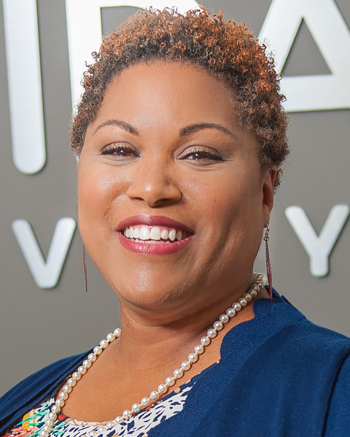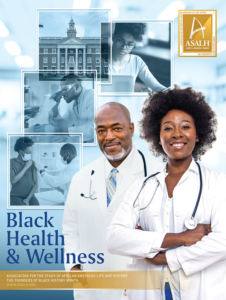Celebrating Black History Month
Black Health & Wellness in 2022!

ReVIDA Recovery – Morristown Program Director
Kaissen Carr
Thoughts from Morristown Program Director, Kaissen Carr:
As I sit and reflect on Black History Month, the first few topics that pop in my head are, the fight, the people, and the inventions. Growing up, these were the main topics discussed during the 28-day cycle of the month of February. We would talk about Martin Luther King Jr. and the March, or his “I Have a Dream” speech, George Washington Carver and what he did with peanuts, Madam C.J. Walker and the significant role she played in the hair industry, and dozens of other Black inventors, activists, etc. Are these times in history important? Of course, they are! But there is so much more that we can focus on when we talk about Black History Month (BHM).
Each year, there is a theme to help Americans celebrate BHM, and personally, I am excited about this year’s theme: “Black Health and Wellness.” While this theme focuses more on Black scholars and medical professionals, including midwifes, doulas, herbalists, and more, I would like to focus on the health and wellness of myself, and those in the Black community.
We only have one body, so we must take care of it physically, emotionally, and mentally. Historically, African Americans fall victim to serious diseases and health conditions at a higher rate than other Americans, such as heart disease, diabetes, high blood pressure, etc. Some say that this is due to culture, some traditions, and generational traumas. However, other studies show that Black people are not as likely to seek primary or preventative care because they do not share the same access to health care as other Americans. Additionally, Black people may shy away from needed medical appointments because of “…the lack of cultural sensitivity by health care professionals, African Americans being marginalized, and the reliance on family, community, and spiritual support instead of medical or psychiatric treatment -even when it is critically necessary.” Over the years, the Black community has slightly improved these statistics through education and greater access to Black health care professionals.
While the physical definition of health is important, our mental and emotional health is just as important. To me, they go hand in hand. When our physical health is in jeopardy, we also feel emotions that accompany the ailment which can result in our mental health becoming unstable. It also works the other way, when our mental health and emotional health are unstable, our physical health may suffer because they have hindered us from taking care of ourselves.
My mental health has not always been something I have prioritized. I started counseling at the age of sixteen for depression but quickly left because “I did not feel that it was doing anything for me,” and I was embarrassed to say that I was in therapy and on medication. For the next 18 years, I did not seek help for my mental health until I could not handle the emotional and physical damage I was causing to my body: I had hair loss, weight gain, and other health issues that I still deal with now. I know that I am not alone.
Recently, we learned of a tragedy that shook a lot of Americans: Cheslie Kryst, 2019 Miss USA, committed suicide. While others saw her as thriving and living a life that we could only dream of, she suffered in silence. In the same article, there is mention of two well-known, award-winning athletes, Naomi Osaka and Simone Biles, who openly spoke of their mental health and elected not to participate in major sporting events but were ridiculed by the public. There is a widely held assumption that the Black community–specifically Black women–must be strong, not show emotions, or appear overwhelmed or stressed. This causes an undue burden on Black women because we suppress our emotions and stress.
Mental health has been a topic that is often taboo within the Black population. Per an article on McLean Hospital’s website, Cynthia, a volunteer that decided to share her story wrote,
“Mental illness in the Black community has long been a touchy topic. The overriding belief is you don’t go to therapy or counseling or take medicine. You go to church. And you don’t talk about your business to anybody. You put on your big girl pants and keep it moving. That’s what I did, except I wasn’t going anywhere.”
I also can relate to Cynthia. Many times, when I chose to speak of my mental health, I was told to pray about it or ask God for guidance. I am a firm believer in Christ, and I would do just that – but I would also get frustrated because I knew there was more that I needed.
This BHM, we must ask ourselves, “Is it really OK to not be OK?” To me, the answer is yes; but we must acknowledge that we are not ok and then move forward and seek help. I have made a vow at the beginning of the year to make changes in my own health and well-being. I am not fully where I want to be, but this year’s BHM theme of “Health and Wellness” has empowered me to continue to strive for just that. I want to use this BHM to encourage others in the Black community to start and/or continue focusing on their own health and wellness. Finally, this BHM we all, no matter our race or ethnic background, need to be empathetic and encourage each other to take control of our health and wellness, no matter if we are struggling with physical, mental, or emotional health or even substance abuse.








